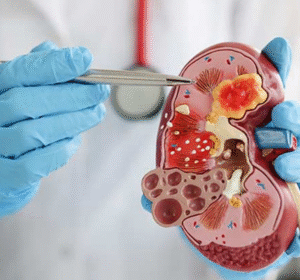
Stress is a natural response to challenging situations, but chronic stress can negatively impact mental and physical health. Managing stress effectively is crucial for maintaining overall well-being. This article provides expert tips from health professionals on how to manage stress and promote mental and physical health.
Understanding Stress
What is Stress?
Stress is the body’s response to any demand or threat. When you perceive a challenge, your body produces stress hormones like adrenaline and cortisol, which prepare you to take action. This is known as the “fight-or-flight” response. While this response can be helpful in short-term situations, chronic stress can lead to health problems.
Effects of Chronic Stress
Chronic stress can affect all aspects of your health, including:
- Mental Health: Anxiety, depression, irritability, and cognitive impairments.
- Physical Health: Headaches, high blood pressure, heart disease, weakened immune system, and digestive issues.
- Behavioral Changes: Overeating or undereating, social withdrawal, and substance abuse.
Tips for Managing Stress
Physical Activity
Regular physical activity is one of the most effective ways to manage stress. Exercise helps reduce stress hormones and stimulates the production of endorphins, which are natural mood lifters.
Recommendations
- Aerobic Exercise: Engage in activities like walking, running, swimming, or cycling for at least 150 minutes of moderate aerobic activity per week.
- Strength Training: Include muscle-strengthening activities on two or more days a week.
- Yoga and Tai Chi: These practices combine physical movement with mindfulness and deep breathing, reducing stress and promoting relaxation.
Mindfulness and Meditation
Mindfulness and meditation techniques help calm the mind and reduce stress by encouraging present-moment awareness.
Techniques
- Mindfulness Meditation: Focus on your breathing and bring your attention to the present moment. When your mind wanders, gently bring it back to your breath.
- Guided Imagery: Visualize a peaceful scene or setting to help relax your mind and body.
- Body Scan: Lie down and focus on different parts of your body, starting from your toes and moving up to your head, noticing any tension and consciously relaxing those areas.
Healthy Eating
A balanced diet supports overall health and can help manage stress. Certain foods can help stabilize mood and reduce stress.
Dietary Tips
- Whole Foods: Eat a variety of fruits, vegetables, whole grains, lean proteins, and healthy fats.
- Omega-3 Fatty Acids: Found in fish, flaxseeds, and walnuts, these fats can help reduce inflammation and improve mood.
- Limit Caffeine and Sugar: Excessive caffeine and sugar can increase anxiety and irritability. Opt for herbal teas and naturally sweet foods like fruits.
Adequate Sleep
Getting enough quality sleep is essential for stress management and overall health. Lack of sleep can exacerbate stress and make it harder to cope with daily challenges.
Sleep Tips
- Regular Sleep Schedule: Go to bed and wake up at the same time every day, even on weekends.
- Create a Relaxing Bedtime Routine: Engage in calming activities like reading, taking a warm bath, or practicing gentle yoga before bed.
- Sleep Environment: Make your bedroom conducive to sleep by keeping it cool, dark, and quiet. Use comfortable bedding and eliminate electronic devices.
Social Support
Strong social connections provide emotional support and help buffer against the effects of stress.
Building Social Connections
- Stay Connected: Make time for family and friends, even if it’s just a phone call or video chat.
- Join Groups: Participate in community activities, clubs, or support groups that interest you.
- Seek Professional Help: If stress becomes overwhelming, consider talking to a mental health professional.
Time Management
Effective time management can reduce stress by helping you prioritize tasks and avoid feeling overwhelmed.
Time Management Strategies
- Make a Schedule: Plan your day and week in advance, allocating specific times for work, leisure, and self-care.
- Prioritize Tasks: Focus on the most important tasks first and break larger projects into manageable steps.
- Set Boundaries: Learn to say no to additional commitments that can increase your stress levels.
Relaxation Techniques
Incorporating relaxation techniques into your daily routine can help manage stress and promote relaxation.
Techniques
- Deep Breathing: Practice deep breathing exercises, inhaling slowly through your nose and exhaling through your mouth.
- Progressive Muscle Relaxation: Tense and then relax each muscle group in your body, starting from your toes and moving up to your head.
- Listening to Music: Enjoy soothing music to help relax your mind and body.
Cognitive Behavioral Techniques
Cognitive-behavioral techniques help identify and change negative thought patterns that contribute to stress.
Techniques
- Cognitive Restructuring: Challenge and replace negative thoughts with more positive and realistic ones.
- Problem-Solving: Develop effective strategies to tackle stressors rather than avoiding them.
- Self-Compassion: Practice being kind and understanding toward yourself during stressful times.
Professional Advice and Resources
Seeking Professional Help
If stress becomes unmanageable or leads to significant impairment in daily functioning, seek help from a healthcare professional. Therapists and counselors can provide support and teach coping strategies.
Types of Professional Help
- Psychotherapy: Therapists can provide cognitive-behavioral therapy (CBT) and other techniques to help manage stress.
- Medication: In some cases, medication may be prescribed to help manage anxiety or depression associated with chronic stress.
- Stress Management Programs: Many healthcare providers offer programs specifically designed to teach stress management techniques.
Utilizing Resources
Various resources are available to help manage stress and promote well-being.
Resources
- Mobile Apps: Apps like Headspace, Calm, and MyFitnessPal offer guided meditations, relaxation exercises, and fitness tracking.
- Online Support Groups: Virtual communities where individuals can share experiences and receive support.
- Books and Articles: Numerous books and articles provide insights and techniques for stress management. Look for reputable sources such as those recommended by healthcare providers.
Managing stress is essential for maintaining mental and physical well-being. By incorporating healthy lifestyle choices, relaxation techniques, social support, and professional help when needed, you can effectively manage stress and improve your quality of life. Embrace these tips from health professionals to navigate life’s challenges with resilience and positivity.






